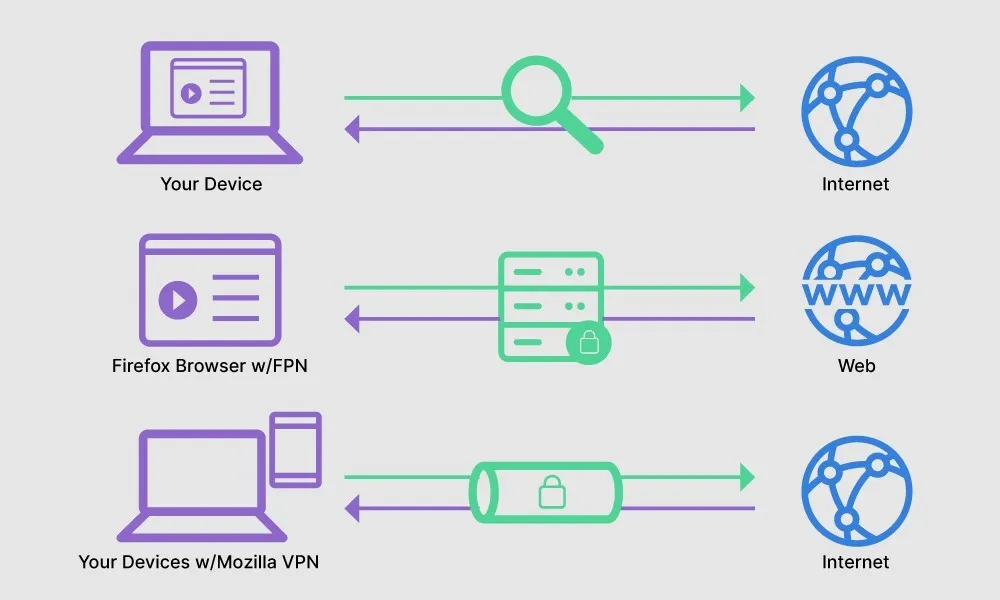Proxy servers act as relays between the website you’re visiting and your device. Your traffic goes through a middle-man, a remote machine used to connect you to the host server.
The web proxy server hides your original IP address so that the website sees the IP of the proxy (in some cases, the computers of other proxy users are used for this).
However, proxies only work on the application level, meaning it only reroutes the traffic coming from a single app you set your proxy up with. They also don’t encrypt your traffic.
There are three main types of proxy servers:
HTTP Proxies – These only cater to web pages. If you set up your browser with an HTTP proxy server, all your browser traffic will be rerouted through it.
SOCKS Proxies – These proxies are not limited to web traffic but still only work on the application level.Although they can handle all kinds of traffic, they are usually slower than HTTP proxies because they are more popular and often have a higher load.
Transparent proxies – These are a different kind of proxy because their users are usually unaware of their existence. These proxies can be set up by employers or parents who want to monitor users’ online activity and block access to specific websites.
Hotels and cafes use them to authenticate users on public Wi-Fi and companies or home users might also set them up to save bandwidth.
Some services also offer private proxies, but these aren’t private the way a VPN is. Instead, they offer the user a single IP address that only they can use. In this sense, it ensures that the user remains easily traceable, but having a separate dedicated IP address can have its specific benefits.
